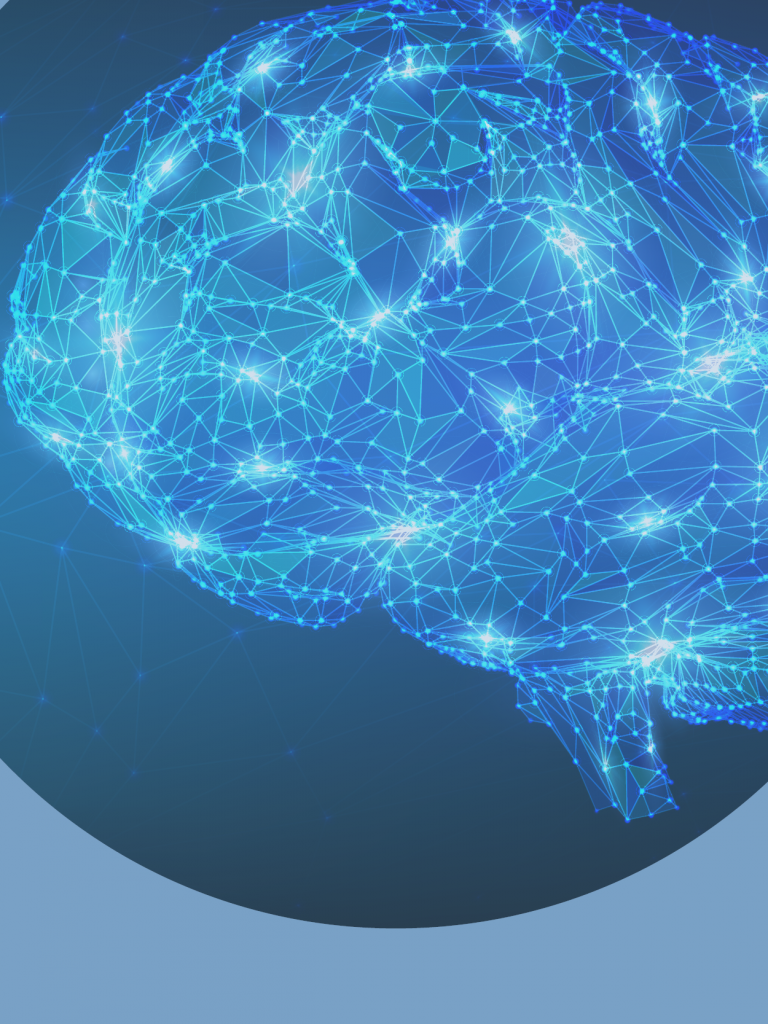Closed-Loop Platform for Neurotherapy – NIH-funded Project for Stroke Rehabilitation
The first “brain pacemakers”, developed several decades ago, stimulated a specific area of the brain constantly, regardless of the patient’s condition. The stimulation parameters could only be changed by the attending physician. Because this approach cannot respond quickly to changes in the patient’s condition that occur in daily life, therapeutic success is sometimes unsatisfactory and compromised by unwanted side effects. To overcome this problem, advanced neurotherapeutic approaches aim to establish automated, closed-loop interactions between the brain and the implant, allowing the stimulation to be adapted to the patient’s needs and avoiding the side effects of inappropriate stimulation.
However, such closed-loop approaches require thorough development and rigorous validation of the algorithms that perform the closed-loop control before they can be applied in a medical device. The software must be able to analyze the recorded neural data and determine which stimulation protocol should be applied by the device. The entire control cycle must be able to operate on physiologically relevant time scales, which in many applications are on the order of seconds rather than hours or days. Some approaches even require time locking between neural brain waves on the order of milliseconds.
The CorTec Brain Interchange device is designed for such advanced closed-loop neurotherapeutic approaches. To allow researchers to control the device with their specific algorithms and in their particular experimental setup, CorTec provides an API that allows researchers to develop a custom application for their research. To enable code reuse and portability across experiments, labs, and programming languages, special software solutions have been proposed that provide a framework that can address multiple devices and use different programming languages. The team of Jeffrey Ojemann and Jeffrey Herron, with whom CorTec is collaborating in an NIH-funded project, has now developed such a platform for the CorTec Brain Interchange (BIC) system. The platform is called OMNI-BIC, builds on the previously proposed Open Mind Neuromodulation Interface (OMNI), and was recently presented at the 2023 Neuroengineering Conference in Baltimore.
Using the platform, the authors tested an open-loop and two time-sensitive closed-loop paradigms in a benchtop setup. The study provides an impressive demonstration of the new framework’s capabilities for developing custom neuromodulation software. OMNI-BIC establishes an attractive research tool for all types of future closed-loop neuromodulation studies, beyond the stroke rehabilitation project the authors are conducting with CorTec.
Reference
Cho, J. Ojemann and J. Herron, “Open Mind Neuromodulation Interface for the CorTec Brain Interchange (OMNI-BIC): an investigational distributed research platform for next-generation clinical neuromodulation research,” 2023 11th International IEEE/EMBS Conference on Neural Engineering (NER), Baltimore, MD, USA, 2023, pp. 1-6, doi: 10.1109/NER52421.2023.10123808.
Learn more about the Brain Interchange System
We are providing a bidirectional system for the discovery of new therapies. With its closed-loop functionality, we are aiming to provide the next generation of implantable devices for research and clinics. Let us know about your research projects and contact our sales team!
More User Stories using our Implant Technology
Discover more User Stories and read about novel research approaches, new devices and outstanding scientific achievements. Visit our “User Stories” section.
To read more Stories related to this NIH-funded project, please click here and also visit the Website of the University of Washinton for more insight into the studies..
